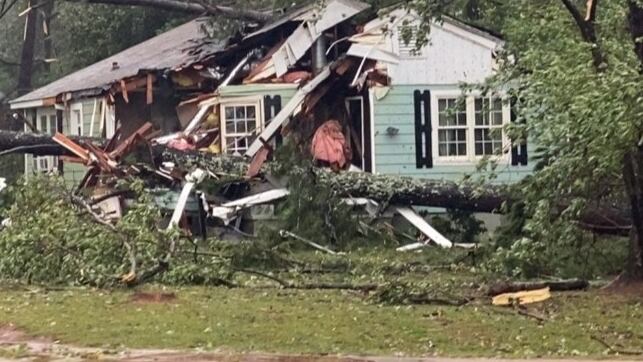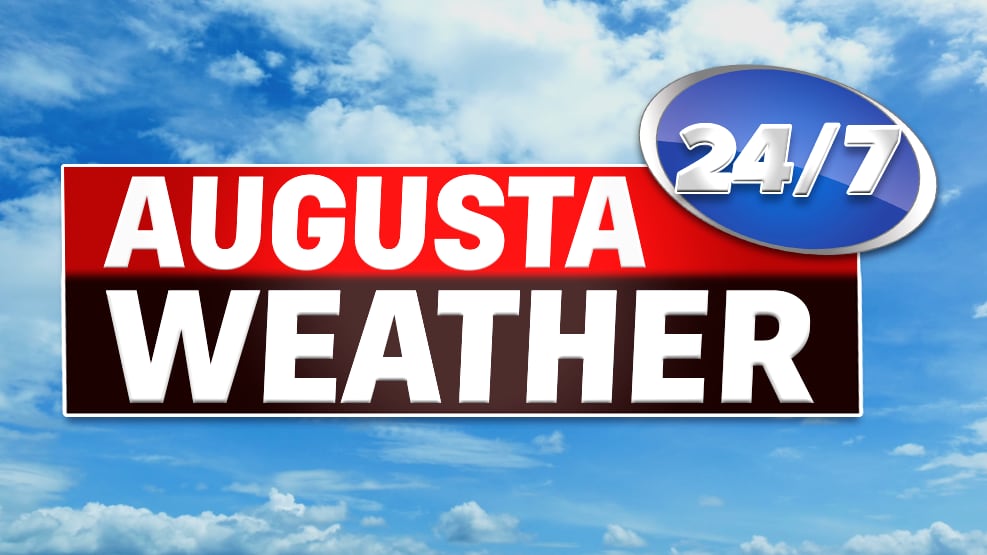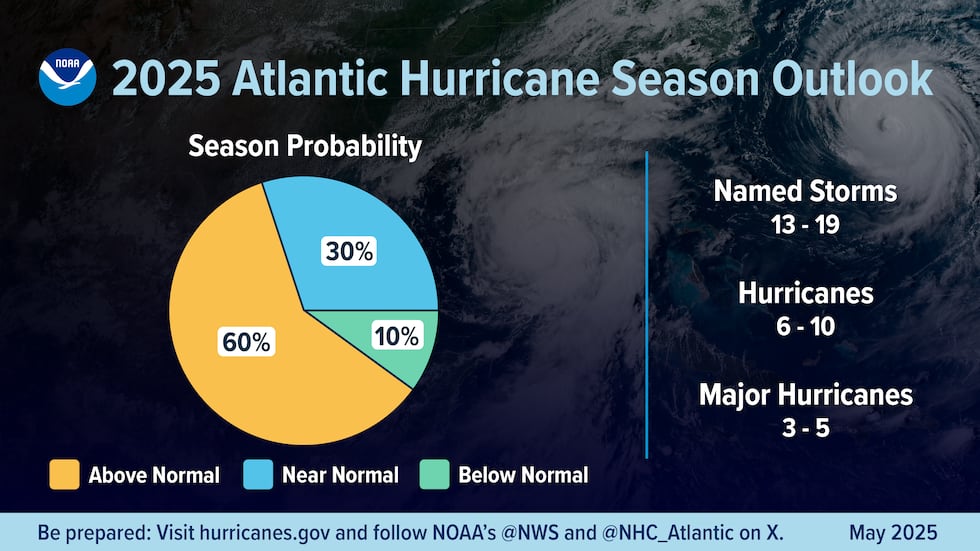In new storm season, are Augusta leaders ready for another Helene?
AUGUSTA, Ga. (WRDW/WAGT) – Now that we’ve lived through one of the worst-case hurricane scenarios for the CSRA with Helene last September, you’d think we’d be ready for whatever comes our way this season.
Since officials know exactly what could happen, the need for a playbook should be obvious, right?
We asked local leaders how they’re planning for the new hurricane season – which started Sunday – and Augusta Commission member Wayne Guilfoyle told us this:
“I don’t think you could prepare for an act of God. The only thing you can do is prepare for the aftermath.”
When we asked the mayor’s office, we were told there’s no official checklist.
A new hurricane season is here: What we learned from Helene
While CSRA residents used to feel safe from a full-strength hurricane, Helene changed that, many of us say we’ll do things differently this year.

Has there been any review of what the city did right and wrong after Helene?
A spokesperson for Mayor Garnett Johnson told us Monday that he’s been mainly focused on meeting a federal deadline for opening roads, clearing tree stumps and removing debris.
That’s a subject that dominated even early news conferences after Helene even as residents of underserved neighborhoods lacked supplies or a way to get to them – and it still seems to be a key talking point for officials.
Check forecast, conditions on our streaming weather channel
Worried about the weather? Here’s a live feed from Augusta Weather 24/7, our around-the-clock digital weather channel.

In talking with News 12, Guilfoyle seemed to hang his hopes on the city’s plans to hire a new Emergency Management Agency director.
The new hurricane season didn’t wait for that to happen, though.
And it could be a while to get that new hire on board, considering it took leaders 2½ years to hire a city .
Guilfoyle did say a committee of the “emergency command staff” – consisting of the mayor, city and heads of the public safety agencies – takes the lead on emergency preparations, and he spoke highly of them.
“A lot of conversations had and a lot of conversations being prepared,” he said.
Still, we didn’t hear a lot of specifics from officials about what they’d do differently next time around.
AN ONGOING ISSUE
Preparedness: A key concern for local residents
- With the 2026 budget survey starting Monday, News 12 looked back at the results from last year’s survey to see if city officials have taken any of the public’s suggestions into consideration.
- We found this, submitted on May 29, 2024, before Helene even got here:
- “Emergency Management – mitigation and preparation for large natural disasters/ severe weather to increase resilience”
Let’s look at what might be worth discussing about the city’s Helene response in case we should find ourselves in the same situation:
- Aid centers after Helene were spread throughout the city in places that had to be reached by car, even as blocked roads trapped residents in many neighborhoods. Most gas stations were shut down or out of fuel, so many people couldn’t buy gas for their cars if they wanted to. And officials were sending out the mixed message to stay home and off the roads, even though you had to use the roads to get the supplies they were offering. There were even reports of pedestrians being turned away from one drive-thru aid center.
- City officials made the shocking decision to shut down the water system after Helene because debris was clogging the intakes. This at a time when sanitation was a key concern: Toilets needed to be flushed, spoiled food needed to be cleaned up, and hot and sweaty bodies, as well as wounds, needed to be washed. Again, the only way to get water was to travel to a distribution center – if you were lucky enough to have a drivable car and be able to keep it fueled up.
- Curfews were imposed after Helene, concentrating traffic during certain times of day and making many roads imable near major services. With power out, major intersections went uncontrolled – lacking even temporary stop signs. Officers were eventually brought in to help direct traffic in trouble spots, but even then, there were nightmares like a stretch of Riverwatch Parkway that could only move as fast as Costco’s gas line. The line extended out onto the major thoroughfare and snaked eastward to Topgolf Way before making a U-turn back west to Cabela Drive. This made for a two-hour journey to get about a block from Interstate 20 to Cabela Drive – a traffic jam you had to through even if you weren’t going to Costco.
- Even after power was restored, traffic signals were out of sync for months, piling up cars at some intersections while lights remained green for long periods at the next intersection even with no cars ing through.
- The most vulnerable of the community couldn’t count on bus service to help them reach the supplies they needed. Augusta Transit was one of the first services to shut down and the last to reopen after Helene.
- During news conferences, officials spoke of plans to take supplies out into neighborhoods where they were needed. It was actually days before that happened. And officials from multiple agencies touted the same exact resources, making it seem like more help was available than actually was. The mobile soup kitchen cited by city officials was the same one state officials were taking credit for and that another organization was telling the public it was staffing.
Still, Guilfoyle is proud of the city’s reaction to Helene.
“They were saying, ‘Hey, y’all moved quickly, the communication was great.’ And so we couldn’t ask for much more,” he said. “Nobody could prepare for a disaster like we had. But what we did is we walked through it, we went through it and got it all cleaned up.”
As far as getting resources out to the neighborhoods faster, “that’s where the EMA director is going to come in, be prepared,” he said.
What about feeding the vulnerable of the community if another disaster hits us?
Guilfoyle said the city would again rely on groups like the Red Cross and the Salvation Army for that.
He feels there have been some improvements to the water system since Helene, and he spoke highly of steps taken by Utilities Director Wes Byne. Guilfoyle says he feels like Byne has made it possible to get help on the spur of the moment if anything happens.
He also was moved by private citizens’ willingness to help their neighbors.
Those neighbors had better be ready because the National Oceanic and Atmospheric istration expects this hurricane season to be worse than normal.

Consider this:
NOAA predicts 13 to 19 named storms this season, meaning maximum sustained winds of at least 39 mph. Of those, NOAA expects six to 10 to become hurricanes and three to five to become Category 3, 4 or 5, with maximum sustained winds of at least 111 mph.
“This outlook is a call to action: be prepared,” NOAA National Weather Service Director Ken Graham said.
Despite Augusta officials’ views on the situation, many local residents are taking things into their own hands – like those neighbors who offered help out of necessity – because they don’t intend to be caught off guard if officials aren’t prepared.
WHAT’S AHEAD?
“You just kind of never know what’s going to happen,” Augusta resident Heather Graham said.
Graham is making sure she is stocked up on food, charcoal and water. She’s also taking time now to get to know her neighbors.
She may need their help.
Copyright 2025 WRDW/WAGT. All rights reserved.















